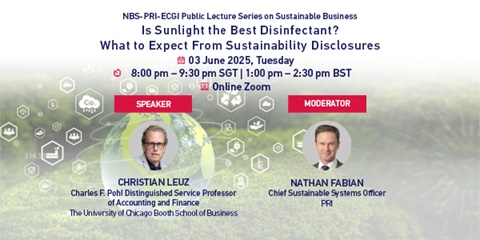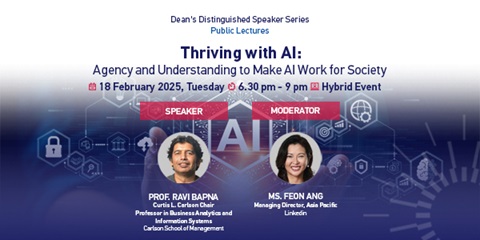Applying 'act blur, live longer' to family life
Anyone who has spent time in the Singapore military would have come across the phrase: act blur, live longer.
The meaning of the phrase is that if you are a newbie in the military, you should probably not behave like a know-it-all, nor answer questions on behalf of the rest of your group without first checking with them.The phrase teaches recruits to rely on the wisdom of the team and, ultimately, the veterans among them, before venturing beyond the limits of their knowledge or ability.
Living longer, as the phrase implies, means that the recruit will not get any additional duties beyond those that have been assigned. In a wartime setting, it protects the group from any potentially risky behaviour that the newbie might get into, potentially jeapordising the safety and lives of the team.
In my experience, the phrase does not just apply in the military. A friend of ours, who mentors young couples about to get married, dishes out the same advice to couples as they embark on their marriage journey.
The phrase "act blur, live longer" reminds newly-weds that before each individual makes a commitment on behalf of the couple, he or she should check with the other party first. So, until the other party in the relationship has been consulted, the appropriate response to an invitation is to "act blur" until internal checks are done.
This practice allows each partner to weigh in on key decisions and helps to remove a major cause of friction in young marriages. In addition, the advice promotes communication in the marriage, allowing the couple to come up with a joint plan.
The advice has another aspect in regulating how young couples interact with each other. Sometimes, it is better to just go with the flow, especially if the other party in the relationship has a strong preference. In such a situation, the maxim calls for the other party in the relationship to "act blur" and give in.
This give and take is a form of healthy compromise if it is practised mutually between parties in a relationship, helping them to build a healthy and strong marriage in the long term.
It appears that the wisdom of "act blur, live longer" extends beyond Singapore. For me, it greatly resembles advice that the late United States Supreme Court Judge Ruth Bader Ginsburg gave to the young lawyers and women she mentored.
Ginsburg, who championed women's rights, wrote in a New York Times Op-Ed that "in every good marriage, it helps to be a little deaf". She described this as the most important advice that her mother-in-law gave her on her wedding day.
She explained that she followed the "selective deafness" advice assiduously, not only at home through 56 years of marriage, but also in every workplace that she worked at, including her time at the Supreme Court.
Her point was that when a thoughtless or unkind word is spoken, it is best to tune it out. She felt that striking out in anger or annoyance at every slight affected her ability to counter her opponents in a rational and objective way.
She felt that her "deafness" helped her to persuade people to see her point of view during heated arguments or discussions. In her view, reacting in anger or annoyance just makes things worse. In other words: "act blur, live longer".
When my two boys were younger, I had a tendency to overreact to everything they said while I was disciplining them.
Thoughtless remarks that were made in the heat of the moment, catalysed by ill temper, soon escalated into shouting matches with them.
Over time, these shouting matches started to take their toll. My sons started to distance themselves from me emotionally as our relationship became increasingly fraught. Once-frequent gestures of physical affection like hugs and cuddles started to dry up.
My wife explained that the boys sometimes made the remarks as they were trying to process their emotions and assert themselves as part of their journey from boyhood to manhood.
By overreacting to their comments and immediately concluding that the boys were being rude or talking back, I was depriving them of a chance to learn how to engage healthily during a heated discussion.
My wife counselled me to practise Judge Ginsburg's concept of "selective deafness" and behave as if I had not heard the boy's remarks, said in the heat of the moment, focusing instead on rationalising and explaining to them where they had gone wrong.
At first, it wasn't easy to "act blur" to some of the comments that were made by the boys. Internally I would seethe, but tried to keep a poker face as I reasoned with them about where they had fallen short. But I kept at it.
Over time, it got easier to focus on the issues and not on the side show of comments that arose during the disciplining process. Instead of escalating into shouting contests, I was able to engage them and help them see why they were being disciplined.
An unexpected outcome is that the boys came away with a clearer understanding of where they had gone wrong.
I guess instead of wasting time having temper-fuelled arguments, the time was now more productively spent discussing what went wrong and how to improve in the future.
As the boys engaged more in their own disciplining process, it also raised their intrinsic motivation to do what is right.
As the years passed, our relationship became less fraught. Eventually, they were comfortable enough to show their physical affection in hugs and cuddles again.
In many ways, I feel like I have dodged a bullet and managed to salvage the relationship with my sons by following the sage advice of "act blur, live longer".
At some point, I believe that my two boys will pair off with their partners as they prepare to embark on their own separate lives and families.
When that happens, one piece of relationship wisdom that I intend to pass on to them is to "act blur, live longer".
Writer, Abel Ang is the chief executive of a medical technology company and an adjunct professor at Nanyang Business School
Source : The Straits Times



.tmb-listing.jpg?Culture=en&sfvrsn=8b2cb369_1)


